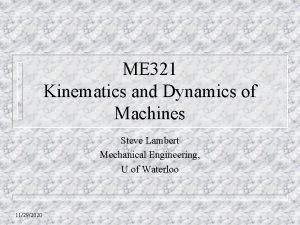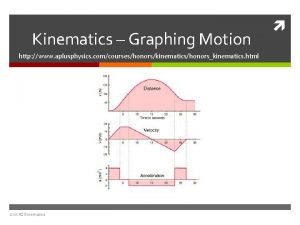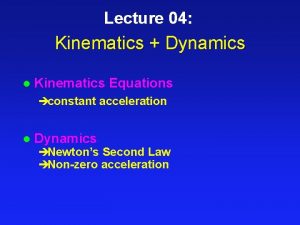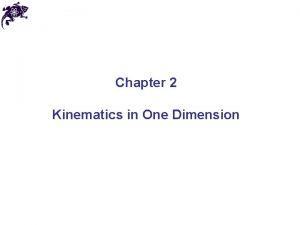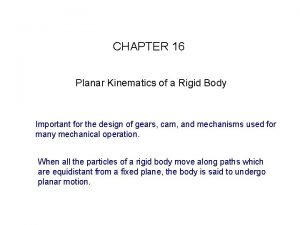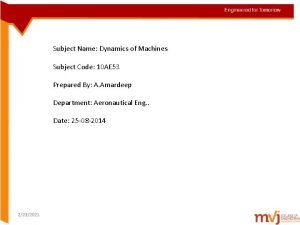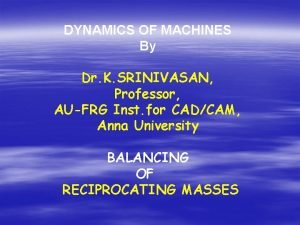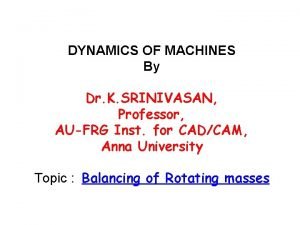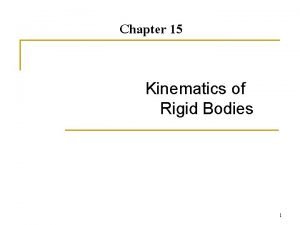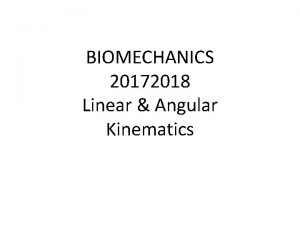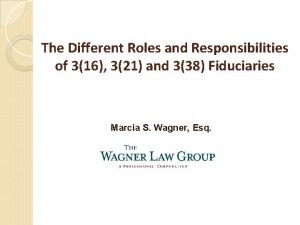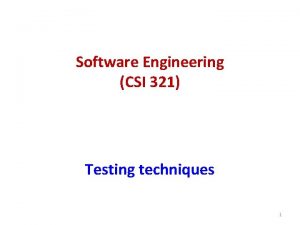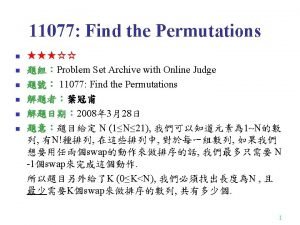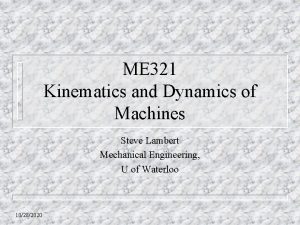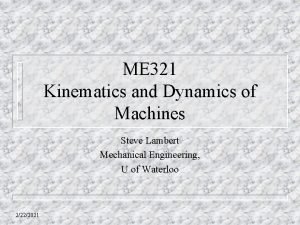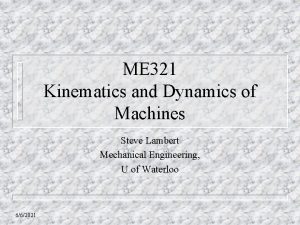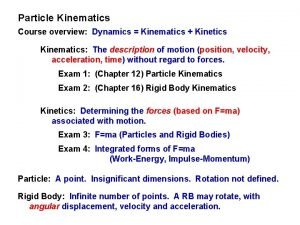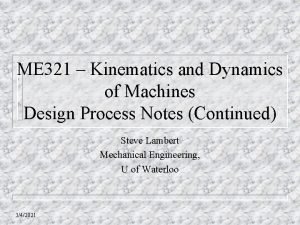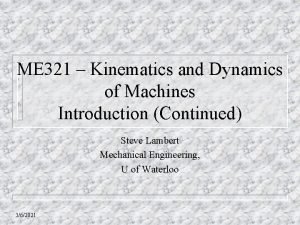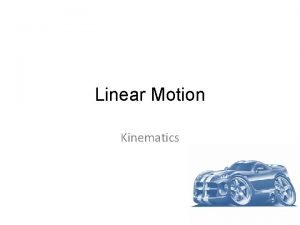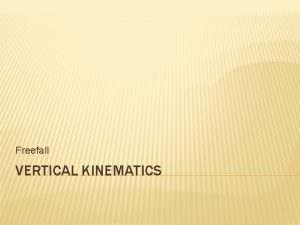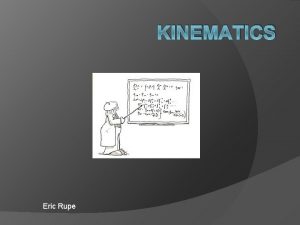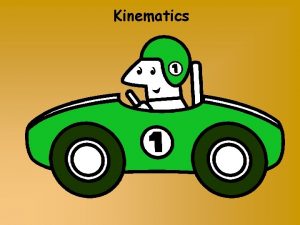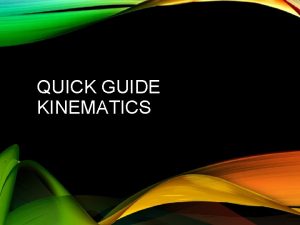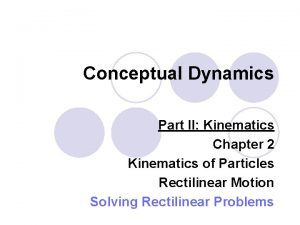ME 321 Kinematics and Dynamics of Machines Steve
















- Slides: 16

ME 321 Kinematics and Dynamics of Machines Steve Lambert Mechanical Engineering, U of Waterloo 9/17/2020

Rotating Unbalance r t e m 0 x m c 9/17/2020 k m 0 Fr xr x

Rotating Unbalance Equations of Motion: For the unbalanced mass: For the net mass: 9/17/2020

Rotating Unbalance Assume a particular solution of the form: By analogy to earlier solutions: and for r = r/ n 9/17/2020

Rotating Unbalance 9/17/2020

Rotating Unbalance Example 6. 5: A machine has a rotating unbalance, which results in a maximum steady-state deflection of 1 cm at resonance. Based on a measurement of the free decay of the system, it is estimated that the damping ratio is = 0. 1. The total mass of the system is 100 kg, and it is estimated, from manufacturing considerations, that the magnitude of the mass unbalance is 5 kg. Estimate the effective radius, e of the unbalance, and the amount of mass that would have to be added to the machine to reduce the vibration to 1 mm. 9/17/2020

Base Excitation x(t) m c k y(t) 9/17/2020

Base Excitation Assume a base excitation of the form: This gives the following governing differential equation: Or, in normalized form: 9/17/2020

Base Excitation There are two particular solutions. One due to the force of the damper: And one due to the force of the spring: 9/17/2020

Base Excitation These two solutions have the same frequency, and can be combined as follows: 9/17/2020

Base Excitation Displacement transmissibility: 9/17/2020

Base Excitation The force acting on the mass through the damper and spring is: or: 9/17/2020

Base Excitation The transmitted force can be rewritten as: with: or, in normalized form: 9/17/2020

Base Excitation Force transmissibility: 9/17/2020

Base Excitation Force transmissibility (dashed line) and displacement transmissibility (solid line) for = 0. 05 9/17/2020

Base Excitation Example 6. 6: Consider a single degree-of-freedom model of an automobile suspension travelling over a rough road. The road is modeled as providing a base excitation, in m, of The equivalent stiffness of the suspension is k = 4 105 N/m, a damping coefficient, c = 40 103 kg/s, and a mass of 1000 kg. Determine the steady-state amplitude and displacement of the automobile mass. 9/17/2020
 Kinematics and dynamics of machines
Kinematics and dynamics of machines Aplusphysics kinematics-horizontal kinematics
Aplusphysics kinematics-horizontal kinematics Kinematics acceleration formula
Kinematics acceleration formula Dynamics kinematics
Dynamics kinematics Curvilinear translation
Curvilinear translation Ronald wayne biography
Ronald wayne biography Dynamics of machines
Dynamics of machines Dynamics of machines
Dynamics of machines Pivoted cradle balancing machine
Pivoted cradle balancing machine Kinematics and kinetics of rigid bodies
Kinematics and kinetics of rigid bodies Linear and angular kinematics
Linear and angular kinematics Closed kinematic chain
Closed kinematic chain Edel 321
Edel 321 Responsibilities
Responsibilities Csi 321
Csi 321 123 132 213 231 312 321
123 132 213 231 312 321 Apokalypsis 321
Apokalypsis 321
